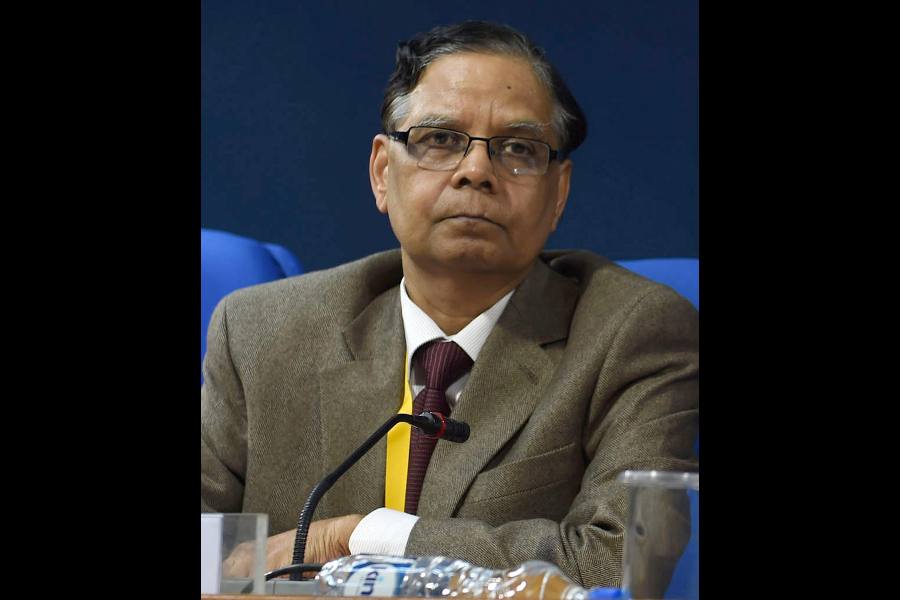The government on Sunday appointed former Niti Aayog vice-chairman Arvind Panagariya as the chairman of the 16th Finance Commission.
Joint secretary in the finance ministry Ritvik Ranjanam Pandey will be the secretary to the commission, the government said in a notification.
“The President is pleased to constitute a Finance Commission with Dr Arvind Panagariya, former Vice-Chairman, NITI Aayog and Professor, Columbia University, as the Chairman. Members of the Commission will be notified separately,” it said.
The commission will submit its report for the five-year period (2026-27 to 2030-31) to the President by October 31, 2025.
Economists said the commission would have to do a tough balancing act meeting the aspirations of developed states and other less developed ones in formulating the devolution road map. “We may have await for detailed terms of reference to get some idea,” they said.
In 2017, Panagariya, an Indian-born, US-educated economist, resigned from the Niti Aayog, after he was hand picked by Prime Minister Narendra Modi to lead the newly created body that replaced the former Planning Commission that drew Soviet-style five year economic plans.
Previously, he was former chief economist of the Asian Development Bank. He has also worked with the World Bank, International Monetary Fund and United Nations Conference on Trade and Development.
The Union cabinet, chaired by Prime Minister Narendra Modi, last month approved
the Terms of Reference (ToR) of the 16th Finance Commission.
Besides suggesting tax devolution between the Centre and states and revenue augmentation measures, the Commission would review the present arrangements for financing disaster management initiatives with reference to the funds constituted under the Disaster Management Act, 2005.
The Finance Commission is a constitutional body that suggests the principles which should govern the share of the direct taxes such as income and corporation taxes between the Centre and states.
Terms of reference
It also suggests the principles which should govern the grants to states out of the Consolidated Fund of India and the sums to be paid to them as grants under Article 275 of the Constitution for the purposes other than those specified in the provisos to clause (1) of that article.
ToRs also include the measures needed to augment the Consolidated Fund of a state to supplement the resources of the panchayats and municipalities in the state on the basis of the recommendations made by the Finance Commission of the state.
The erstwhile 15th Finance Commission under N.K. Singh had recommended that states be given 41 per cent of the divisible tax pool of the Centre during the five-year period 2021-22 to 2025-26, which is at the same level as was recommended by the 14th Finance Commission.
As part of the fiscal glide path, the 15th Finance Commission recommended that the government would strive to cut down the fiscal deficit to 4.5 per cent of GDP by fiscal 2025-26.
Earlier this month, Panagariya said India must take the steps necessary to help its economic units grow larger.
“Small habitations, small farms, and small enterprises are intimately linked. Reforms that will help the enterprises in industry and services grow larger will create job opportunities for the masses, which will, in turn, pave the way for workers to migrate from rural to urban areas,” he said.
He was in Mumbai to give the 18th C.D. Deshmukh Memorial Lecture.
India will become the third largest economy by 2026 as its GDP in current dollar terms will reach $5 trillion in that year and further rise to $ 5.5 trillion in 2027, he said.










